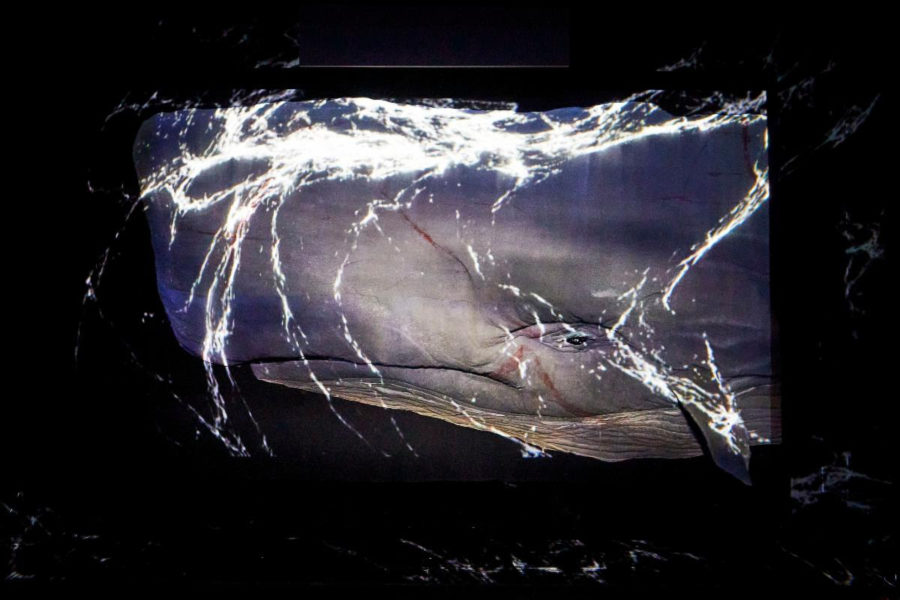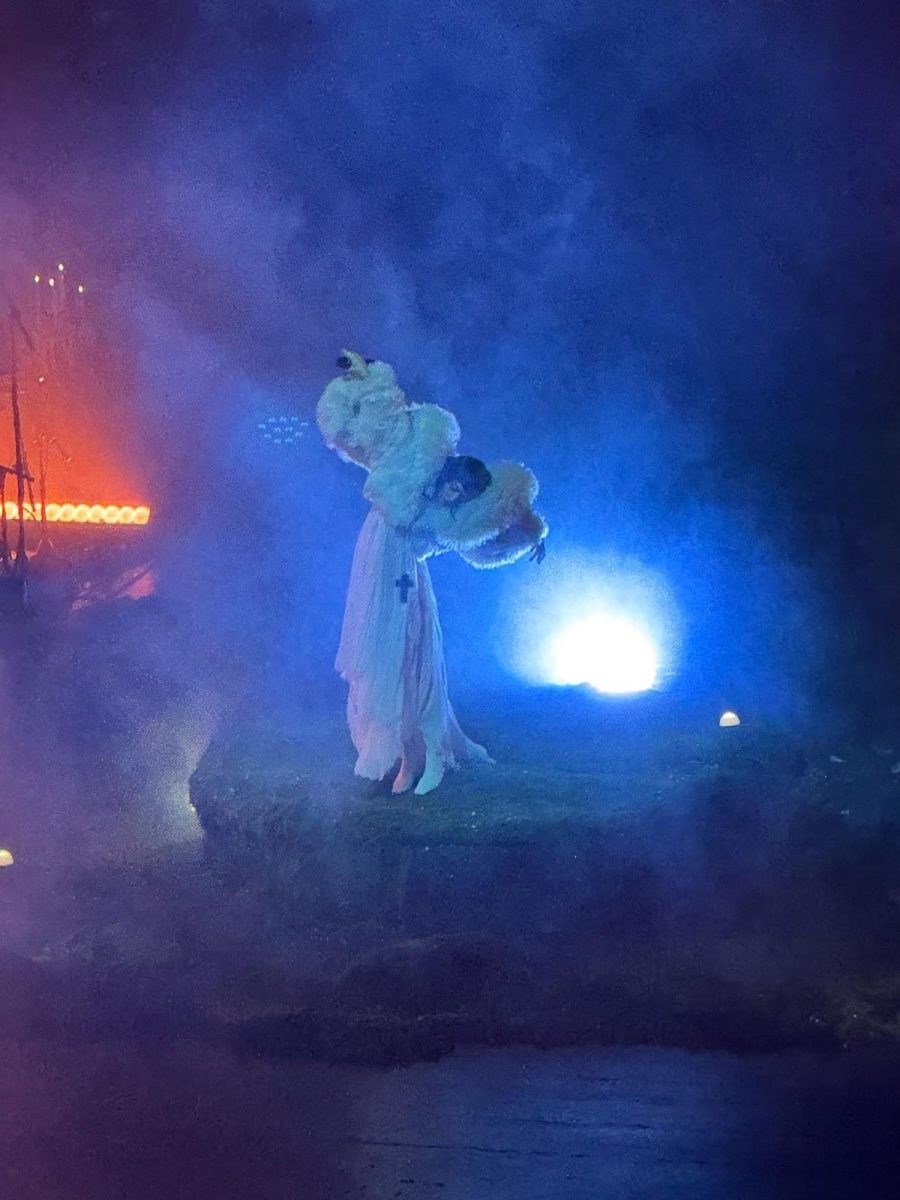It’s a Wednesday night at the Studebaker Theater, and 70 minutes into Moby Dick, an immense white whale painted on a screen slowly covers a dark stage. The whale seems completely still until you notice the subtle blinking of its monstrous eye accompanied by the flapping of a pectoral flipper.
On January 18, French-Norwegian puppet theater company Plexus Polaire kicked off the annual Chicago International Puppet Theater Festival with a showing of Moby Dick. Having recently listened to Audiobooks Unleashed’s 24-hour long reading of Moby Dick on YouTube, I had one question heading in—how would a puppet show tackle Herman Melville’s leviathan with a mere 88-minute running time?
The answer? Spectacularly. Plexus Polaire brings to life the gravity and scale of Melville’s Moby Dick through light, sound, and world-class puppetry. Despite having to significantly slim down from its source material, the show presents a story worth judging on its own merits. Plexus Polaire does what Melville does best by effectively transporting the audience to a world of the primordial and boundless deep.
The show opens with a school of fish swimming in between the ivory ribs of an underwater whale carcass. The fish shimmer and scatter before a crowd of dark-clad figures emerges. As the crowd slowly occupies the stage, you realize that it is composed of puppets and humans alike. For the next hour and a half, the boundary between illusion and reality becomes increasingly blurred. Wave-like shadows accompanied by the ghostly outline of a whale’s tail blend puppet and projection to create an atmosphere of awe.
I was pleasantly surprised by how faithfully the show represented Melville’s language. Ishmael, the only character played by a human actor, delivers an opening monologue that guides the audience on board Captain Ahab’s whaling ship. As Ishmael narrates events at sea, the inherent musicality of Melville’s language comes into focus.
While Ishmael’s longer monologues were occasionally long-winded, there was no shortage of action during the performance. At one point in the production, Plexus Polaire gives the audience a bird’s eye view of a whaling operation. In an extremely well-coordinated sequence, Captain Ahab’s crew, taking their positions on two rowboats, harpoon a mother whale swimming with her two calves. The crew slowly peel blubber off the motionless whale, leaving her bloody carcass with her calves.
The show’s digestible hour-and-a-half running time gave little room for the entire array of Moby Dick’s characters, but Plexus Polaire brought Captain Ahab to life in all his puppet glory. In one particularly memorable scene, five members of the Plexus Polaire cast man a larger-than-life puppet of the captain sitting at his desk. Haunted by a vision of the white whale, Captain Ahab slowly descends into obsession as the contents of his desk are thrown into the air in a suspension of gravity.
Plexus Polaire’s Moby Dick was a celebration of pure artistry and a demonstration of the magic of puppetry. It is perhaps not enough to say that the puppets were lifelike—Plexus Polaire’s 50-something puppets that present about an hour and a half of Moby Dick were not a mimicry of organic life. They were a suspension of life—the creation of an alternate, watery, and spectacular reality.









